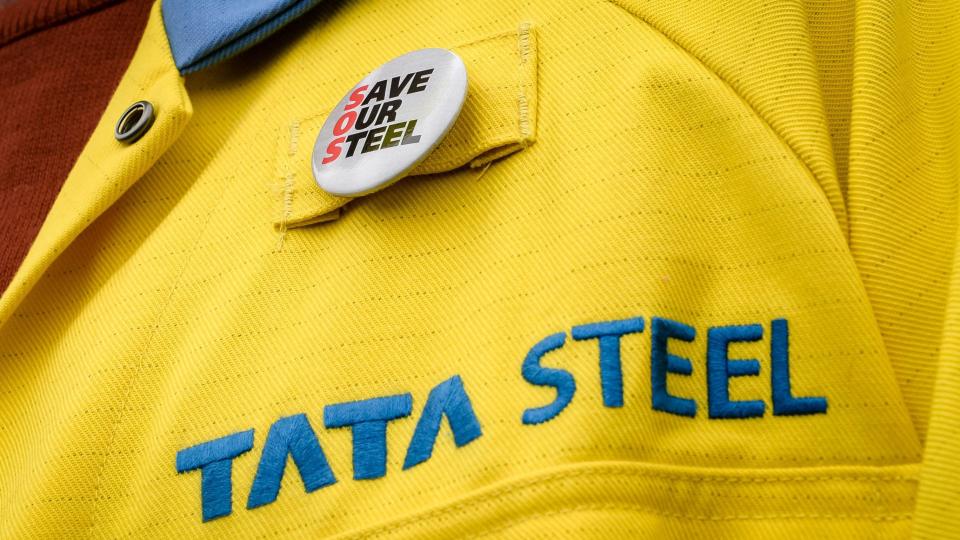Tata deal dubbed 'state sponsored decimation'

A union has described Tata's latest redundancy offer as "state sponsored decimation of a community".
Tata Steel told workers it is offering them its best-ever redundancy deal, after talks with unions collapsed.
In a message to staff, seen by BBC Wales, chief executive Rajesh Nair said the offer showed Tata's "commitment to maximise voluntary redundancies".
The UK government said it was supporting the steel industry with "one of the biggest support packages in history", including a £500m grant.
Union negotiations with Tata Steel broke down on Friday, with the company accused of a "callous attack" on its staff.
The GMB union said: "State sponsored decimation of a community, its jobs and its industry will never get the support of the GMB."
It said Tata and the UK government "should be ashamed of their abandonment of this proud industry and the chaos their plan is going to wreak on the community".
It added that the offer is given in the context of "the largest number of redundancies to happen in the business since they took over in 2007", and the first time members have faced compulsory redundancies.
About 2,800 workers will lose their jobs, mostly in Port Talbot, as Tata Steel restructures its UK operations.
Employees would receive a minimum of £12,500 and none would be made redundant before September 2024, said Mr Nair.
Tata Steel will close both blast furnaces in Port Talbot this year, and will then begin building a £1.25bn electric arc furnace on the site.
The blast furnaces will close by September, with construction due to begin on the electric furnace in the summer of 2025.
The company has addressed staff directly following the failure to reach an agreement during talks with unions in London last week.
Members of the Unite union have already voted to strike over Tata Steel's restructuring plans, which will lead to 2,800 job losses.
Two other unions, Community and GMB, are due to end their own ballots on Thursday.
The UK government said without its support package, including investing in skills and jobs for the workers affected, "many thousands more jobs would have been lost at Port Talbot and in the wider supply chain".
'Frankly unacceptable'
The Community union said the offer was "in bad faith and frankly unacceptable".
It said its members would not be "bullied" into accepting the deal and will await the results of the ballot for industrial action.
Other unions have been asked to comment.
Following the collapse of talks last week, Community, Unite and GMB released a joint statement which said the offer to workers was a "callous attack" and "completely unacceptable".
Tata Steel has faced pressure from unions and some politicians to improve its deal.
First Minister Vaughan Gething is travelling to Mumbai to meet senior Tata Steel bosses this week.
Mr Gething has previously supported union demands that would see one blast furnace remain operational until the electric arc furnace is up and running.
Tata rejected this suggestion as part of its formal consultation with the unions.

Mr Nair told staff he was writing to them because he was "conscious that there has been a lot of speculation and questions" about what the company was offering.
He had previously confirmed to staff that minimum redundancy payments would be £12,500.
But he said last week's talks with unions included a new offer to retain 50 employees at risk of redundancy to work through the transition period "with a confirmed role" in the new operation.
Those staff would be retained on 60% of their earnings and could stay at home, or seek additional employment, during the transition period.
Mr Nair said other staff deemed at risk of compulsory redundancy would "be offered the opportunity to participate in a skills and re-training scheme to help them secure alternative future employment" after losing their jobs.
Staff who enter the scheme would receive training for a maximum of 12 months, and would see their pay fall to the level of the real living wage after five months.
